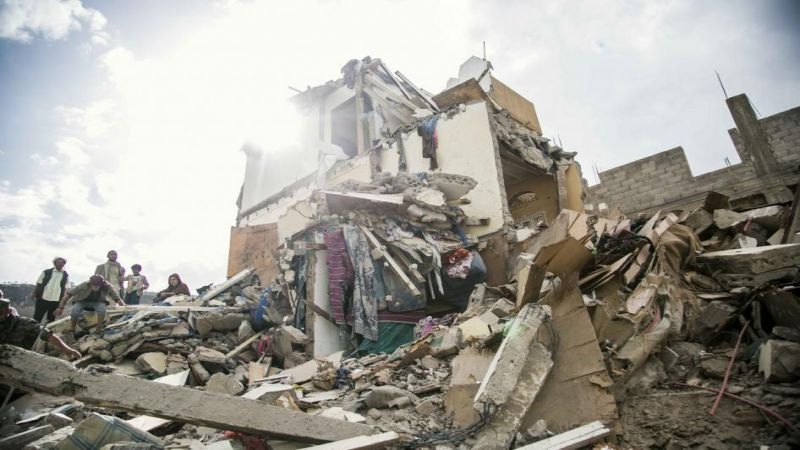
Local Editor
The Saudi-led coalition involved in the conflict in Yemen repeatedly attacked populated areas and deepened Yemen’s humanitarian crisis through its blockade in 2017, Human Rights Watch said today in its World Report 2018.
The Saudi-led coalition, with military backing from the United States, carried out its aerial and ground campaign in support of resigned President Abdu Rabbu Mansour Hadi with little let-up. In December, after clashes broke out between formerly allied Houthi and pro-Saleh forces in Sanaa, Houthi forces killed former President Ali Abdullah Saleh.
“For nearly three years Yemen’s warring parties have committed war crimes with little fear that other governments will hold them to account,” said Sarah Leah Whitson, Middle East director at Human Rights Watch. “United Nations Security Council sanctions … should be extended to senior coalition military leaders, including Saudi Defense Minister Mohammed bin Salman, for their role in obstructing aid and other abuses.”
In the 643-page World Report, its 28th edition, Human Rights Watch reviews human rights practices in more than 90 countries. In his introductory essay, Executive Director Kenneth Roth writes that political leaders willing to stand up for human rights principles showed that it is possible to limit authoritarian populist agendas. When combined with mobilized publics and effective multilateral actors, these leaders demonstrated that the rise of anti-rights governments is not inevitable.
The conflict has taken a terrible toll on Yemen’s civilians. The Saudi-led coalition has used cluster munitions and carried out scores of indiscriminate and disproportionate airstrikes that have killed thousands of civilians in violation of the laws of war, with munitions that the US, United Kingdom, and others supply. Saudi Arabia pledged in December to reduce civilian harm. Since then, Human Rights Watch documented six coalition attacks that killed 55 civilians, including 33 children.
The coalition has stopped goods from entering seaports controlled by the Houthis, closed critical ports, destroyed essential infrastructure, and restricted humanitarian workers’ access. Coalition military actions have violated laws-of-war prohibitions on restricting humanitarian assistance and on destroying objects essential to the survival of the civilian population. These violations, as well as the coalition’s disregard for the reported suffering of the civilian population, suggest that the coalition may be violating the prohibition against using starvation as a method of warfare, which is a war crime.
The resigned Yemeni regime, and the United Arab Emirates and UAE-backed Yemeni militias have arbitrarily detained people, including children; detainees and held them in poor conditions; and forcibly disappeared people perceived to be political opponents or security threats. The number of the “disappeared” grew over the past year. US forces may be complicit in detainee abuse by UAE forces.
“The US, UK, France, and others are risking complicity in unlawful coalition airstrikes by continuing to provide weapons to Saudi Arabia,” Whitson said. “Faced with the world’s worst humanitarian crisis, governments should be urging the UN to enact sanctions against Saudi leaders, not selling them more bombs to use on Yemeni markets, schools, and hospitals.”
Source: News Agencies, Edited by Website Team